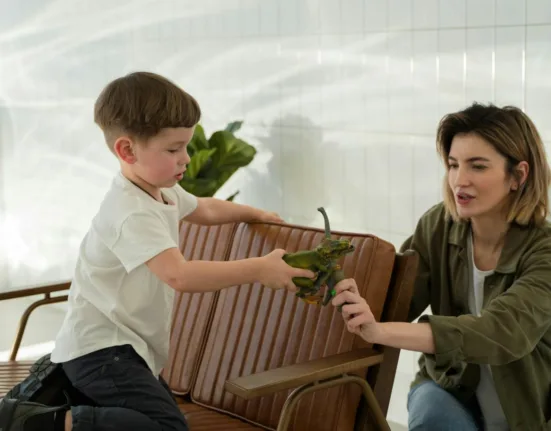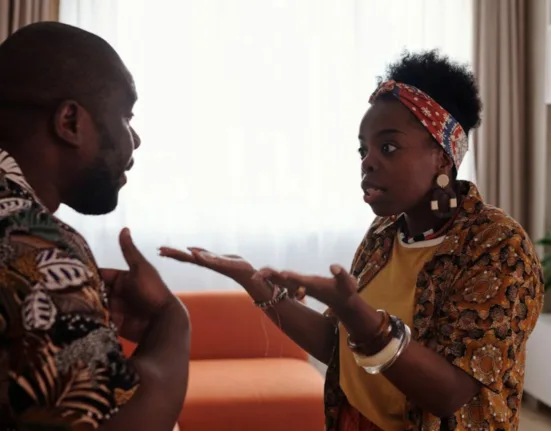Explaining divorce to kids is hard. To make it easier, both parents should plan together what to say. Kids need to know things will be okay. It’s best when both parents can talk to them together. If that’s not possible, the parent who will be around more should do it.
What you say should match your kids’ ages. Don’t give them too much information at once. They’ll have lots of questions, so try to answer them. It helps to give them an idea of what will happen next. Since every divorce is different, you might say things will change over time. They’ll want to know where they’ll live and how often they’ll see the other parent. More: How to tell if someone is mature?
How to talk to kids about divorce?
Learning about divorce is a big moment for kids that they’ll likely always remember, says psychologist Jamie Howard, PhD from the Child Mind Institute. To handle it well, take some time to plan what to say and how to say it.

If you can, Dr. Howard suggests both parents sit down together to calmly tell the kids about the divorce. It’s important to agree beforehand on what to say to avoid conflicts. Kids need reassurance during this time. Showing them that you’re still working together as parents is key. “You want to show them ‘We’re in this together,’” says Dr. Howard. “Even if it’s hard, or if only one parent feels ready.”
If both parents can’t be there, Dr. Howard advises the parent who’s around the most to talk to the kids about the divorce.
Consider their age while explaining divorce
When talking to your child about divorce, consider their age and maturity level. It’s important not to overwhelm them with too many details. Let them ask questions so you can gauge what they’re ready to hear. More: How pressure to be cool can lead women to disregard their needs?
Children often wonder when changes will happen. Some divorces are quick and amicable, while others take longer. “Giving kids a basic timeline can be helpful,” advises Dr. Howard. You might say, ‘We’re separated now and planning to divorce. It might take some time to work everything out, but for now, think of us as divorced.’ If you have an idea of what’s coming next, sharing some details can reassure them. More: Top 5 communication coach tips for effective communication
If there’s a disagreement about custody, Dr. Howard suggests a child-friendly explanation like, “We both love you very much and want to be with you. We’re trying to decide what’s best for you. We don’t agree right now, but we’re talking to other adults to figure it out.”


While explaining divorce avoid talking about money
Dr. Howard advises parents to provide children with a straightforward timeline of the divorce process. This includes explaining that they are currently separated and planning to divorce, though it may take some time to finalize everything. She suggests reassuring children by framing the situation in terms they can understand, such as encouraging them to think of the family as already divorced for the time being.
Regarding custody disagreements, Dr. Howard recommends parents communicate to their children that both parents love them deeply and want to be involved in their lives. She advises explaining that they are working through the details with the help of other adults to determine what is best for the children, even if they do not agree on all aspects right now. This approach aims to provide children with a sense of security and understanding during a challenging time. More: Empowering Children: Teach Kids to Say ‘No’ Safely and Respectfully
Understanding children’s reactions to divorce
Children can respond in various ways when they hear about their parents getting divorced. If there has been a lot of arguing at home, some children might even feel a sense of relief. However, it’s more common for kids to feel sad or even blame themselves. Whatever their reaction, it’s crucial to listen attentively to their concerns and reassure them that the divorce is not their fault. As parents, the priority is to make sure they feel safe and loved during this challenging time. More: Assertiveness definition: How to communicate with confidence?
Dr. Howard emphasizes the importance of reassuring children that the divorce is not their fault and that both parents will continue to prioritize their well-being. As children process the news, they often begin to worry about what will happen in the future. Teenagers, in particular, may express concerns about their parents potentially remarrying. In such situations, Dr. Howard advises parents to respond with empathy and reassurance, emphasizing that while their happiness is important, their child’s place in their life remains unchanged and irreplaceable. This approach aims to alleviate children’s anxieties and reinforce the stability of their relationship with their parents amid the changes brought about by divorce. More: Teach your overly dependent child independent living skills













